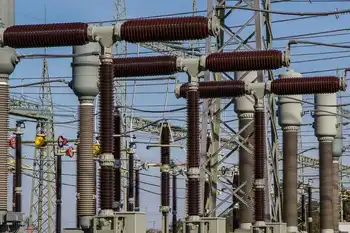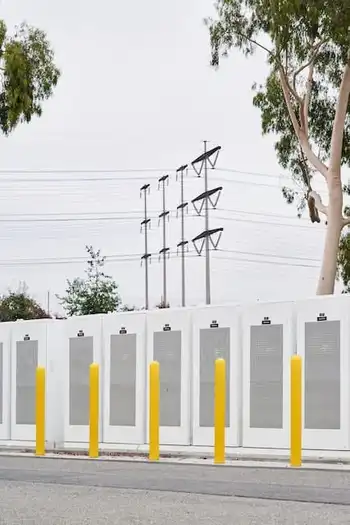Nuclear an unnecessary gamble for Kentucky
By Lexington Herald-Leader
Protective Relay Training - Basic
Our customized live online or in‑person group training can be delivered to your staff at your location.

- Live Online
- 12 hours Instructor-led
- Group Training Available
No one can deny the allure of nuclear power; it plays on our basic human instinct to want something for nothing. Imagine just putting a little of this magical stuff (uranium) in a power plant, and you get out an almost limitless amount of electricity.
Sounds great, yet when something sounds too good to be true, it usually is, and nuclear power is no exception to this rule.
We have the advantage of not needing to rely upon promises from nuclear proponents and equipment manufacturers, since we have the experience of the first wave of nuclear power plants built 30 to 40 years ago.
We are told by proponents that in the last 30 years, the problems of safety and waste disposal have been solved. Yet little has changed; we still don't have, in this country, a permanent way to either store or reprocess waste. And spent nuclear fuel is being stored indefinitely at the existing power plant sites.
While proponents claim nuclear energy has an excellent safety record, the health effects on workers involved in the mining, milling and gaseous diffusion used to upgrade the uranium are well-documented and significant. And just recently, we learned that cancer-causing tritium was leaking from a large number of nuclear plants around the country.
What is seldom discussed is that it wasn't safety problems or a lack of a place to put waste that has resulted in no new nuclear plant construction in decades, it was simple economics. This power source promoted as offering electricity "too cheap to meter" turned out to be too expensive to afford. Construction of these giant, complex plants sent many utilities into bankruptcy.
Just across the Ohio River, Wabash Valley Power Authority was driven into bankruptcy by the uncompleted Marble Hill project, and Public Service Indiana (now part of Duke Energy) came close to failing before Indiana ended the Marble Hill fiasco and allowed PSI to increase utility customers' rates by 64 percent rate to avoid bankruptcy.
To our south, the Tennessee Valley Authority would have gone into bankruptcy over its nuclear adventures, but being a government entity, Congress repeatedly bailed TVA out.
Some neighboring states did complete nuclear power plants, such as Commonwealth Edison in Illinois. But its ratepayers have been paying utility rates for decades that are over twice what we pay in Kentucky.
The nuclear industry has been so heavily subsidized over the years by the federal government, you would think that rates should be lower. But nuclear power is still significantly more expensive than any other form of power. And this hasn't changed with the new generation of nuclear plants.
The nuclear industry had been saying that the cost of a new nuclear plant was $2,500 to $3,000 per kilowatt, in "marketing brochure-level pricing," which would be competitive with other energy sources.
But this doesn't square with reality. As an example, between February 2008 and October 2008, the price for two new reactors proposed for the Shearon Harris site in North Carolina doubled. When it is actually designed and bids are taken for the work, this doubled price will probably at least double again.
So is this what Kentucky needs?
The reality is that many energy-intensive industries that provide a large number of good-paying jobs have located in Kentucky primarily because of our low electricity rates. These include aluminum smelters and processors, electric steel plants and automotive manufacturers.
If Kentucky builds new nuclear plants, and our electric rates double to pay for them, these industries will be forced to leave. How many good-paying jobs is Kentucky willing to lose to chase an unproven nuclear dream?
Gov. Steve Beshear has stirred up some controversy with his expanded gambling proposals. But the gamble on nuclear power would make casino gambling look like a small wager. How many jobs will we risk, how many utility bankruptcies are we willing to tolerate, and how high are Kentuckians willing to let their utility rates go?
Because of the risks to our commonwealth, nuclear power is not an area where Kentucky needs to be a leader. Nuclear power's track record of generating highly reliable, low-cost energy is poor.
Only after it is demonstrated to work as promised, should Kentucky lift its ban on nuclear power. The risks to Kentucky are simply too high to follow a "too-good-to-be-true" scheme that has yet to prove itself after 50 years of trying.











